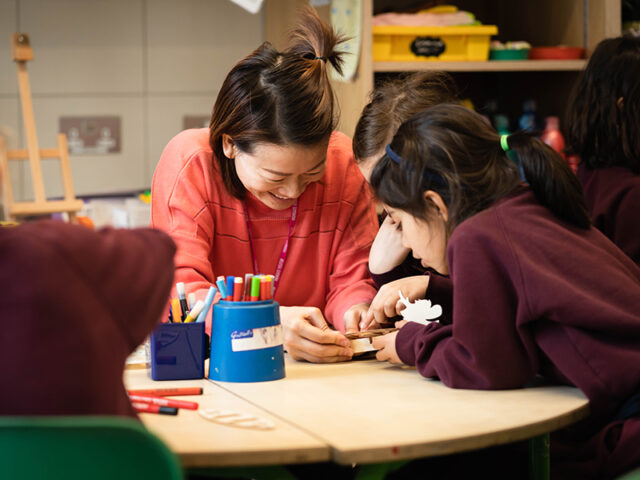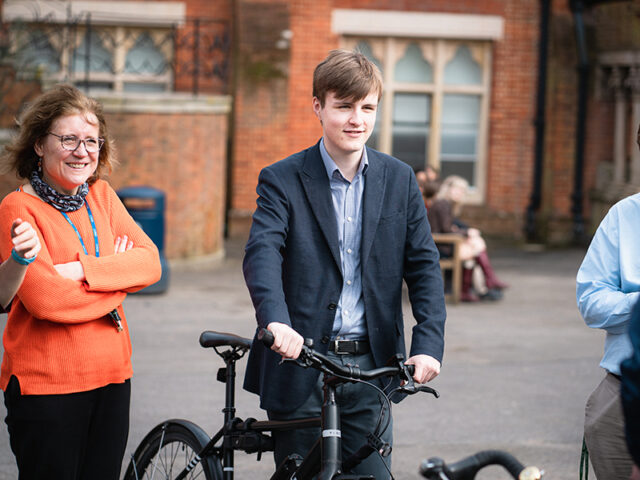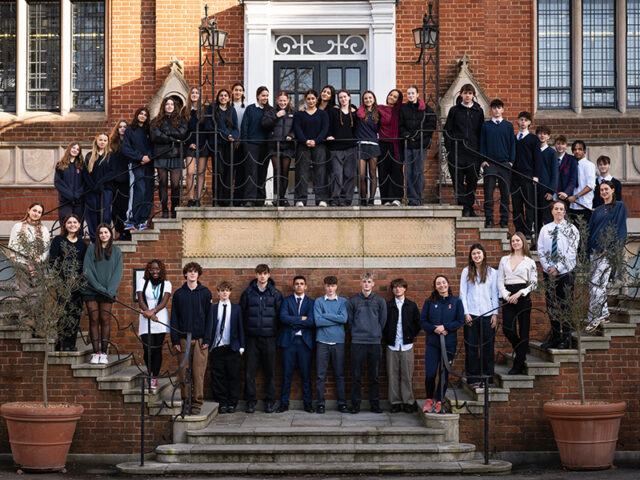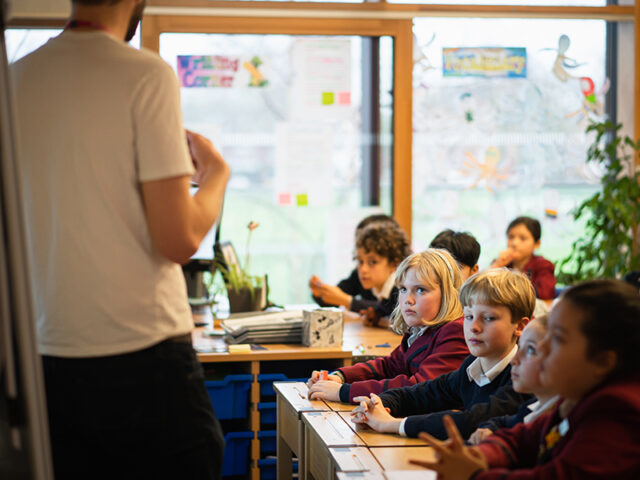Highgate’s home-grown eco-campaign, Fast Fashion-Free February, has concluded for another year – raising awareness of the devastating effects of the ‘fast fashion’ industry on the climate and promoting second-hand, upcycled and sustainably-sourced style choices instead.
This month-long campaign is now in its sixth year and has been recognised in The Week’s Independent Schools Guide for ‘Inspiring Green Initiatives’.
Pupils from the Senior School Environment Committee led events including ‘crafternoon’ sessions to mend and upcycle clothes; a pupil talk on the history and future of fashion; discussions and a quiz in Tutor sessions; a sustainable non-uniform day; a mini-documentary screening and discussion; and a ‘Swap Shop’ event for pupils to donate and swap unwanted clothing.
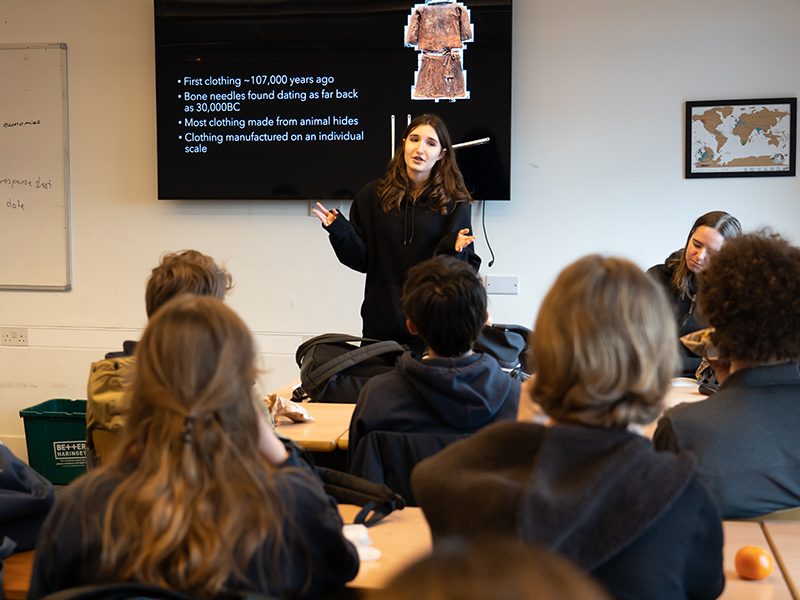
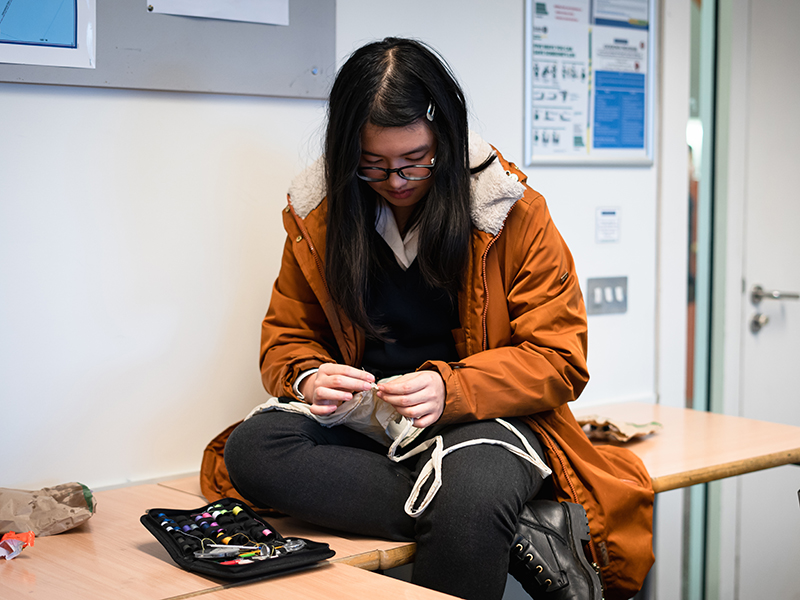
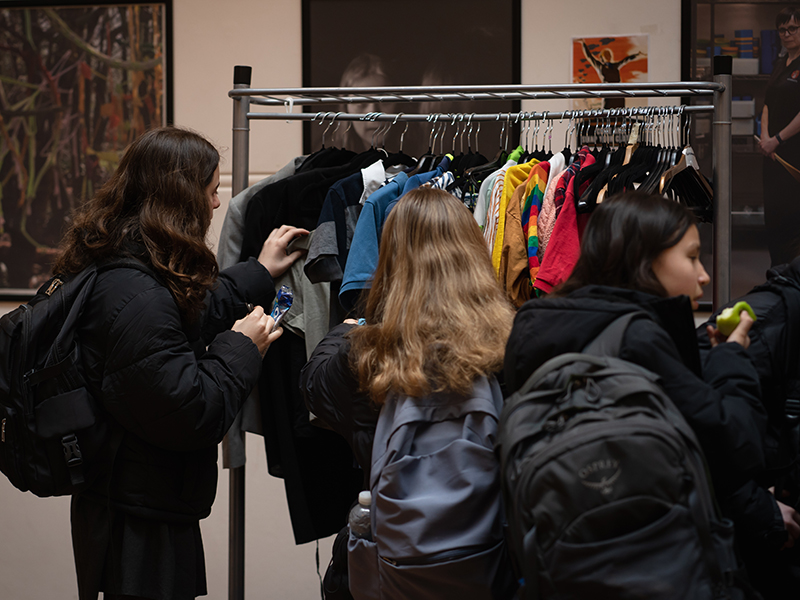
Kiran, Y12, who is a member of the Environment Committee and helped to coordinate activities this month, said: “This year has definitely been another success. The popularity and interest in the swap shop certainly increases throughout the week as clothes we have on display attract the attention of people walking past.
“Even if some people don’t have donations to make or don’t want to swap clothes, it starts lots of valuable conversations about the importance of second-hand clothes and “slow fashion”, he adds.
Junior School pupils joined the efforts with a sustainable non-uniform day. Children across the school displayed a range of upcycled, embellished or home-made items of clothing.
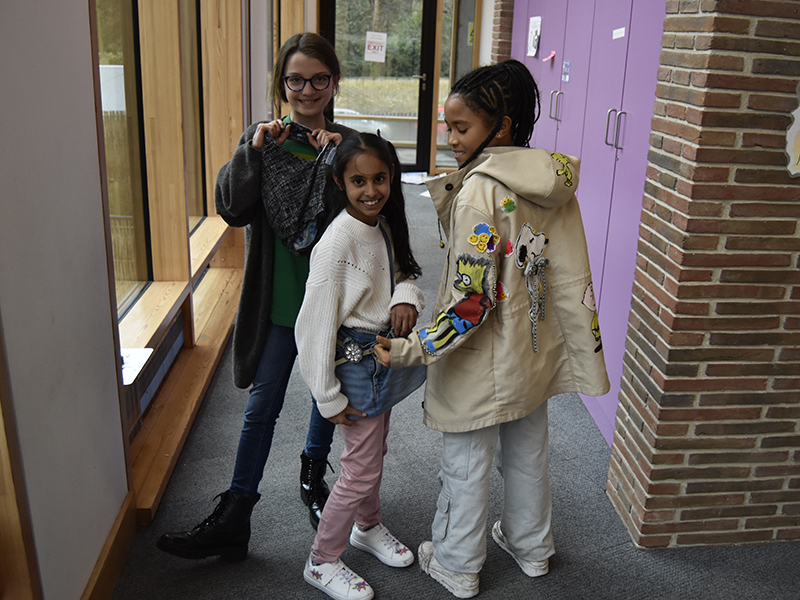

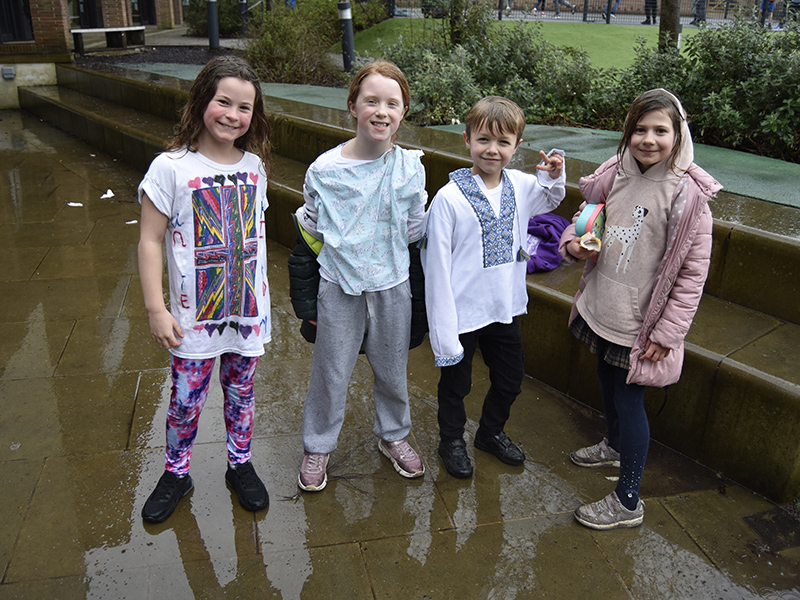
Sarah Mynott, Lead Teacher for the Environment at Highgate, explains the purpose of the campaign: “As the world’s second largest polluter after oil and gas, the fashion industry uses vast amounts of land, water, oil, and toxic chemicals in the manufacturing of textiles, which directly contribute to water pollution in addition to carbon emissions and the climate crisis.”
“The nature of ‘fast fashion’ relies on constantly changing trends to drive sales. In turn, the cheap, rapid manufacture of clothes – which are often made of synthetic materials – are quickly disposed of, taking centuries to break down and shedding microplastics as they go,” she continues.
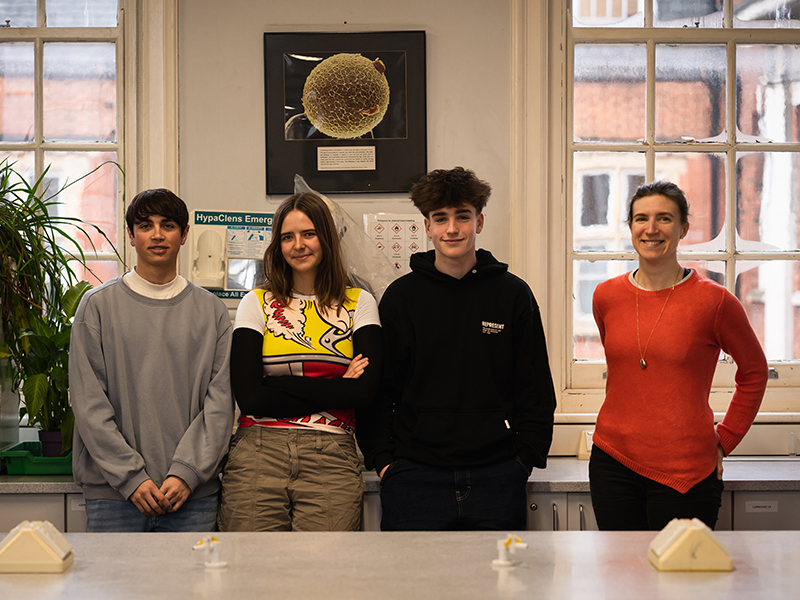
It is something that all of us can do something about, ranging from buying fewer clothes and boycotting fast fashion brands, to buying second-hand or ethically-sourced clothing, to simply looking after our clothes and repairing them when they get damaged.
“It’s been great to see the pupils driving forward with another impactful campaign this year, raising awareness of the damaging effects of the fast fashion industry on people and planet, and offering positive ideas on how we can all be more eco-conscious in our fashion choices and celebrate sustainable style,” Sarah reflects.
